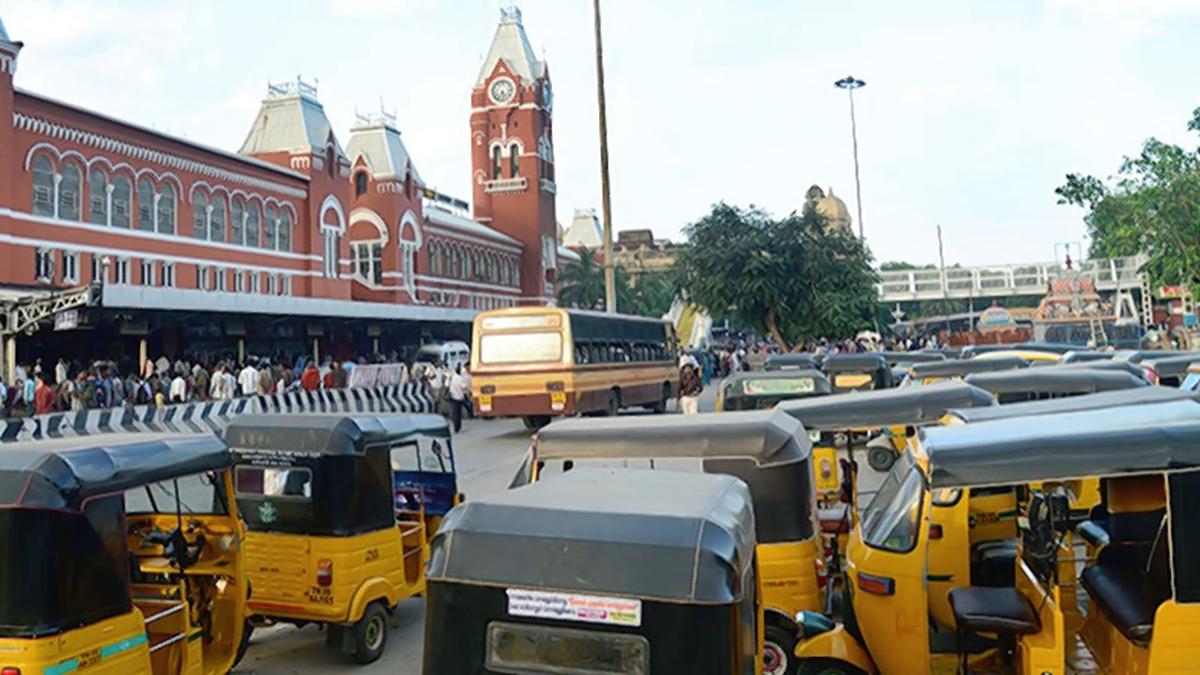
Autorickshaw fares will be revised within 12 weeks, Tamil Nadu government tells Madras High Court
The Hindu
Tamil Nadu govt informs HC they will revise autorickshaw fares in 12 weeks. Transport Commissioner created fare revision committee to consider trade unions' suggestions & other States' fares. Govt to take final decision within 12 weeks; aggrieved parties can approach court to agitate grievances.
The Tamil Nadu government on Tuesday informed the Madras High Court that it shall revise the autorickshaw fares for Chennai metropolitan area as well as all other districts in the State within 12 weeks. It said the Transport Commissioner had sent a proposal in accordance with the recommendations made by a fare revision committee.
Government Pleader P. Muthukumar informed Chief Justice S.V. Gangapurwala and Justice P.D. Audikesavalu that in the previous round of litigation, the High Court had in April 2022 directed the government to create a mechanism through which fluctuation in fuel prices get reflected in the fare that could be collected by autorickshaw drivers.
Accordingly, the Transport Commissioner constituted a fare revision committee under the chairmanship of Joint Commissioner (Enforcement) to hear the suggestions and peruse the representations made by various trade unions representing the autorickshaw drivers and consumer welfare bodies interested in ensuring fair price fixation.
The committee also took into account the fares being charged in other States in the multiple sittings conducted by it and submitted its recommendations to the Transport Commissioner who, in turn, forwarded a proposal for fare revision to the State government. The proposal was now at an advanced stage of consideration by the government, the GP said.
He also submitted the government would take a final decision on the issue within 12 weeks. The judges accepted the submission and disposed of a public interest litigation petition filed by advocate S.V. Ramamoorthy for fixation of revised fares as directed by the High Court last year on an earlier PIL petition filed by him.
The Bench led by Chief Justice Gangapurwala made it clear that after the government fixed the revised fares, any aggrieved party could approach the court to express their grievance in accordance with law.

“Writing, in general, is a very solitary process,” says Yauvanika Chopra, Associate Director at The New India Foundation (NIF), which, earlier this year, announced the 12th edition of its NIF Book Fellowships for research and scholarship about Indian history after Independence. While authors, in general, are built for it, it can still get very lonely, says Chopra, pointing out that the fellowship’s community support is as valuable as the monetary benefits it offers. “There is a solid community of NIF fellows, trustees, language experts, jury members, all of whom are incredibly competent,” she says. “They really help make authors feel supported from manuscript to publication, so you never feel like you’re struggling through isolation.”

Several principals of government and private schools in Delhi on Tuesday said the Directorate of Education (DoE) circular from a day earlier, directing schools to conduct classes in ‘hybrid’ mode, had caused confusion regarding day-to-day operations as they did not know how many students would return to school from Wednesday and how would teachers instruct in two modes — online and in person — at once. The DoE circular on Monday had also stated that the option to “exercise online mode of education, wherever available, shall vest with the students and their guardians”. Several schoolteachers also expressed confusion regarding the DoE order. A government schoolteacher said he was unsure of how to cope with the resumption of physical classes, given that the order directing government offices to ensure that 50% of the employees work from home is still in place. On Monday, the Commission for Air Quality Management in the National Capital Region and Adjoining Areas (CAQM) had, on the orders of the Supreme Court, directed schools in Delhi-NCR to shift classes to the hybrid mode, following which the DoE had issued the circular. The court had urged the Centre’s pollution watchdog to consider restarting physical classes due to many students missing out on the mid-day meals and lacking the necessary means to attend classes online. The CAQM had, on November 20, asked schools in Delhi-NCR to shift to the online mode of teaching.









